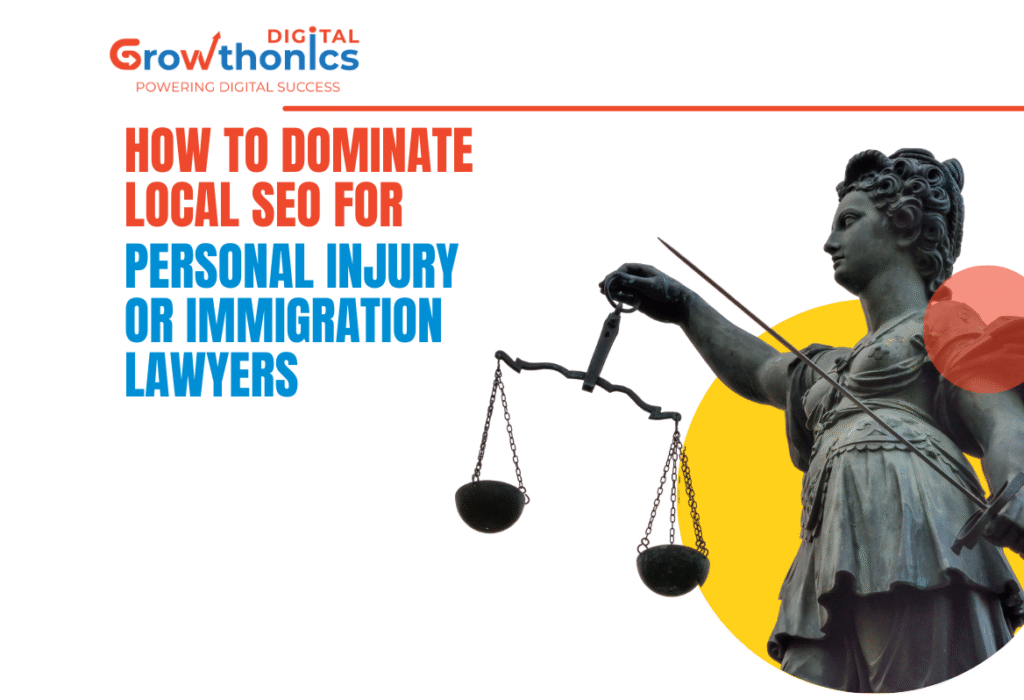It’s not enough to only have a website for attorneys and law firms wanting to attract new potential clients. To stand out and excel in today’s competitive market, it is important that your site ranks at the top prominently in everyone’s search engine result – which will require a well executed and well-structured SEO strategy. Whether you’re a solo legal practitioner or operate in any other field that provides services like accounting or healthcare, effective website optimization is essential for online visibility and growth.
This blog presents a thorough SEO checklist specifically designed for lawyers and law firms, highlighting best practices that raise website traffic, improve search rankings, and produce higher-quality leads.
Conduct a Thorough Keyword Research
Researching keywords serves as the base of an impactful SEO strategy for any law firm. By identifying and highlighting the terms and phrases that potential customers use while searching, and strategically incorporating them into the content you write for your website, you can make your firm reach the right audience at the right time.
But How Do We Conduct Keyword Research?
Focus On Core Legal Terms: Integrate keywords that are high-traffic and relevant to your practice area like “corporate attorney” or “Immigration lawyer” in order to enhance your website’s visibility and divert potential traffic looking for legal services.
Target Local Keywords: Alot of clients look for legal services that are easily approachable to them in a sense of distance. It is important you incorporate location specific keywords in your content.
Incorporate Long-Tail Keywords: Integrating longer and more specific keywords phrases like “best divorce lawyers” or “or how to file a personal injury claim” – You can improve your chances of being visible in search results and draw in more targeted, intent-driven traffic in your area.
Streamline Your Website for On-Page SEO
On-page SEO is all about optimizing every web page individually so their visibility is more enhanced when they are searched for. A proper, well structured and optimized website helps search engines to efficiently crawl and index your content, ultimately improving your rankings and increasing your online presence.
What Are Some Key On-Page SEO Strategies?
Title Tags: Make sure that every single page has its personal and unique keyword- rich title tag. For example, “Personal Injury Lawyer | Your Law Firm” will perform better than a generic title.
Meta Description: Write a meta description that contains your required keywords. While they may not be a direct ranking factor, they help enhance click-through rates.
Headings: Using the H1 tags for adding your main heading or title and H2/H3 tags for the rest of subheadings. Integrating keywords into your headings can help make your content more SEO-friendly.
Interlinks: Adding links to other relevant pages within your web pages can be helpful. For example, if you have a blog post on personal injury cases, link it to your service page for personal injury law.
Local SEO for Law Firms
Local SEO is crucial for attorneys, as most prospective customers search for legal services within their specific city or region. Achieving strong visibility in local search results is important to attracting and converting these location-based inquiries.
What Are Some Tips For Local SEO Success?
Google Business Profile: Take custody of and improve your Google Business Profile, previously referred to as Google My Business. Provide precise details such as the address, phone number, and practice areas of your firm.
Consistency of NAP: Ensure that your website, regional directories, and social media profiles all have the same Name, Address, and Phone Number (NAP).
Localized Content: Make content that helps to target local problems or questions. For example, “How to Choose the Best Divorce Lawyer” or “Steps to Filing a Personal Injury Claim” can drive local traffic.
Make Content That Is High Quality And Relevant
Frequently publishing content that’s rich in quality and Informative is important for the success of SEO in the legal industry. It will not only improve your visibility online as a website but also strengthens your authority and credibility within your specific area of practice.
But What Types Of Content Should We Focus On?
Write Blog Posts: Provide content about cliche legal problems that your clients might face, like “Understanding Real Estate Laws” or “How to File for Bankruptcy.” Question-answering blog posts can rank highly for long-tail keywords.
Dsd
Showing Case Studies: Utilize thorough case studies to highlight your prior accomplishments. This increases credibility and permits you to use significant legal terminology.
FAQs: Besides addressing commonly asked legal questions, a FAQ page can enhance SEO by concentrating on long-tail keywords.
Ensure Strong Technical SEO
Technical SEO takes care of your website’s backend components to ensure peak performance, quick loading times, and easy search engine accessibility. Even the most valuable content might not rank highly in search results if it is not optimized correctly technically.
But What Key Technical SEO Practices to Follow?
Mobile Optimization: Your website should be designed to be mobile-friendly, as the majority of users today will access you through a mobile phone.
Quick Loading Time: A website that takes time to load increases bounce rates and annoy visitors, which makes a negative impact on SEO. Utilizing tools such as Google PageSpeed Insights can help identify areas with problems.
Protect Your Website: Ensure that your website is secure by implementing HTTPS. Customers are more inclined to trust a secure website, and this influences Google’s ranking.





